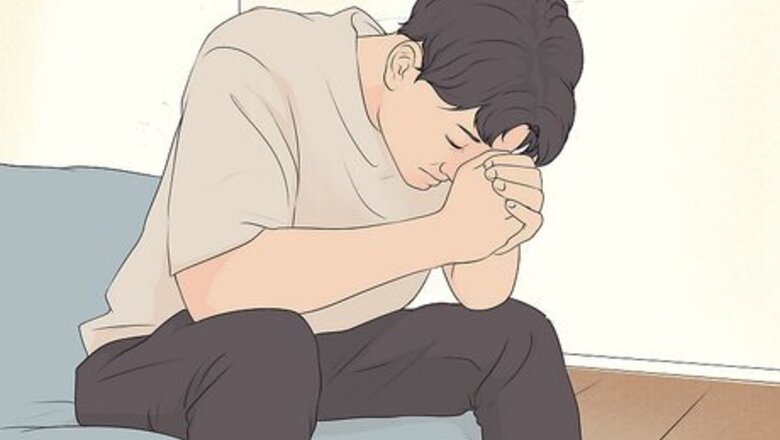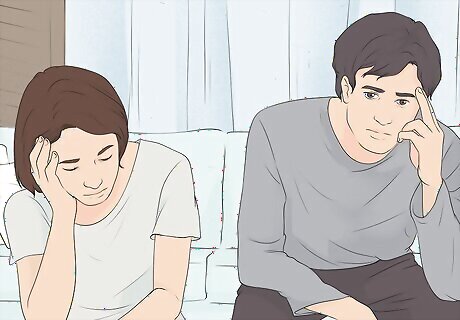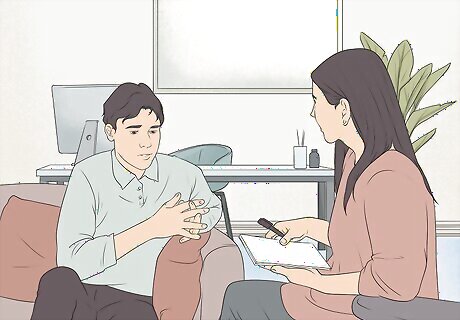
views
- Some ghosters feel guilty about cutting off contact abruptly, especially if they had a close or long-term relationship with the ghostee.
- If the ghoster can self-reflect, they may realize that they hurt the other person and regret their behavior. They might try to make amends or ask for a second chance.
- Others feel relief or indifference about ghosting because they think it’s less confrontational than directly ending the relationship.
Do ghosters feel guilty?

It depends on the ghoster’s emotions and the nature of the relationship. Studies show that some ghosters feel guilty about their actions, especially if they shared a close or long-term relationship with the ghostee. With that being said, people can ghost for various reasons, depending on their personality, attachment style, and the seriousness of their relationship. People-pleasers and those with avoidant attachment styles tend to ghost because they believe it’s less confrontational than ending the relationship. They might have a fear of conflict or intimacy, or lack the skills to communicate their feelings. Generally, men are more likely to ghost someone after sleeping with them, compared to women, and they’re less likely to feel guilty if they view the relationship as a situationship. Research also suggests that ghosters’ guilt doesn’t last long—most ghosters move on once they’re no longer in contact with the other person.
Possible Feelings That Ghosters Experience

Guilt, shame, or regret If the ghoster was in a serious or long-term relationship with the other person, they’re more likely to recognize their behavior as selfish. Since they’re aware of their actions, they might feel bad about cutting off contact abruptly and hurting someone in the process. Sometimes, the ghoster might try to reappear in the ghostee’s life to make amends or ask for a second chance.

Relief If the relationship was toxic, the ghoster may feel liberated when choosing to cut off contact because they believe their decision is justifiable. They’re just trying to protect themselves and avoid a potentially dangerous or violent situation. Alternatively, the ghoster may be relieved if they were feeling annoyed or pressured by the ghostee. This usually happens if one person is more invested in the relationship and tries to convince the other person to commit to them.

Indifference Ghosting is a lot easier due to technology, so many people don’t consider it to be that harmful or serious. If a person simply loses interest or believes there’s someone better out there, they might drop the person they’ve been talking to without a second thought. If the ghoster is looking for a casual fling, for example, they might cut off contact with the other person once the initial excitement of the relationship has worn off.

Pride If the ghoster has narcissistic traits, they might feel proud of their behavior because they think it’s a power play. Ghosting gives them the ability to end the relationship on their own terms, avoid accountability, and maintain a sense of control over the other person. In fact, narcissists aren’t willing to empathize with others, so they tend to prioritize their feelings and view relationships as tools for their own control and validation.

Anxiety Sometimes, the ghoster feels overwhelmingly anxious or awkward about the situation because of the possibility of running into the ghostee in real life. They probably know that their actions are immature and are worried about a confrontation.
Repercussions of Ghosting

Ghosters cut off people abruptly, so they don’t learn how to maintain healthy relationships. Ghosting is harmful to the ghoster because it allows them to avoid discomfort and challenging situations. This avoidance can lead to serious, long-term issues in their personal and professional life, like being unable to communicate their feelings or form deep connections with others. Luckily, some ghosters do self-reflect and understand the effects of their behavior, allowing them to improve their communication skills and set healthy boundaries in their relationships.
How to Deal With Getting Ghosted

Reframe your experience. At the end of the day, a ghoster’s reasons for ghosting revolve around them—they might not be ready for a relationship or know how to communicate their feelings properly. This has nothing to do with you, so try to view the situation as a reflection of their behavior. They probably have a lot of inner work to do, and you’re better off without them! Even if you’ve been ghosted multiple times, remind yourself of your positive qualities, and remember that you’re worthy of love and respect.

Engage in activities that bring you joy. To boost your self-esteem, schedule time for things that make you feel good inside—take a walk outside, throw a dance party, or plan a trip with your besties. By practicing self-care, you’ll remind yourself that you deserve the very best in life!

Talk to a trusted friend, family member, or therapist. If you’re struggling with getting ghosted, express your feelings to a loved one or mental health professional, instead of keeping everything bottled up inside. Talking to someone can help you process your emotions, find healthy coping strategies, and get another perspective on your situation. Find a therapist in your local area, or look for one online through sites like BetterHelp or GoodTherapy.

Continue to put yourself out there and have fun dating. While getting ghosted can be painful, it doesn’t mean you’ll feel this way forever. There are so many people who would love to be in your life, and you can always meet new people by using apps, taking classes, or asking friends if they know anyone who might be a good match!
















Comments
0 comment